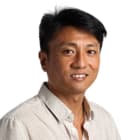The Gulf beckons to more Asians. This is how they’re answering the call
A former commando from Singapore, a national footballer from Indonesia, an AI expert from China — they are some of the Asian migrants eyeing new heights in the Middle East. The documentary Gulf Falcons tells their stories.
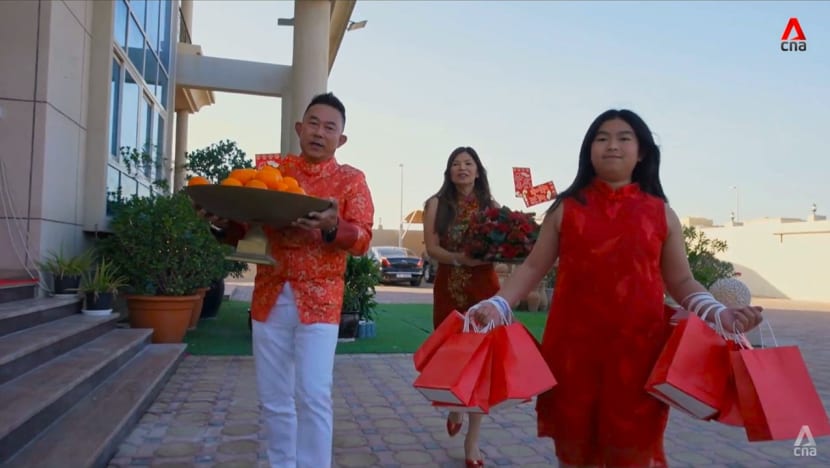
Singaporean businessman Pach Ang, wife Vivien and daughter Sephina Christine getting ready for Lunar New Year guests in February in the United Arab Emirates.

This audio is generated by an AI tool.
ABU DHABI and RIYADH: As a former Singapore Armed Forces commando and founding member of the Red Lions parachute team, Pach Ang was no stranger to risk-taking after three decades of service.
So after he hung up his chute and was exploring a new career, he decided to venture into the meetings, incentives, conferences and events (Mice) sector in Abu Dhabi, where he saw “a lot of potential”.
He planned for a two-year stint to “see how it’d go”. Fifteen years on, the company he founded, RedFilo Events, has won numerous awards to become a key player in the United Arab Emirates’ events space.
Today, the 62-year-old feels he might not have enjoyed the same success if he had established his business in Singapore. “In one single exhibition, you can have up to 5,500 exhibitors from … 190 countries coming here,” he said.
“Everybody wants to be here in Abu Dhabi doing that event because this is the hub. You can see there’s a sudden influx … in the Mice industry, lots of conferences (and) major conferences like COP28.”
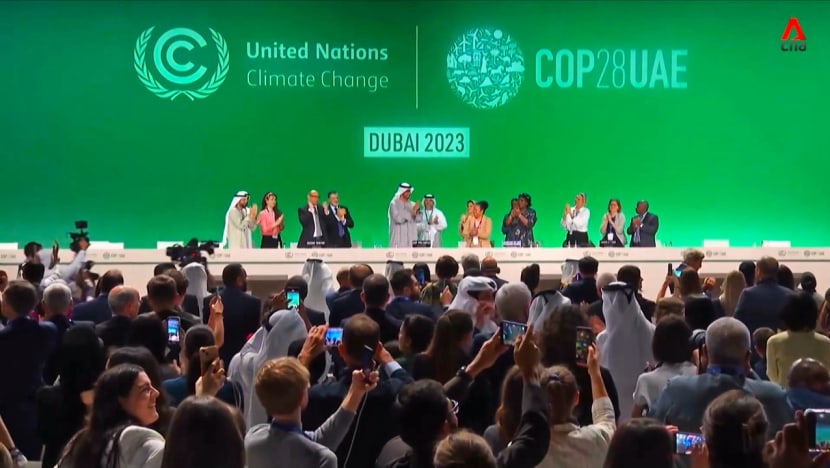
Living in the capital, he has had a ringside seat for the UAE’s transformation into a commercial hub in recent years. And he has been joined by more South-East Asians and East Asians seeking opportunities.
They are moving to not only the UAE, but also the other oil-rich countries in the Middle East nicknamed the Gulf Falcons after the bird that has long been synonymous with the region.
As these Gulf states diversify their economies amid the global transition from the fossil fuels that have brought them wealth for decades, they have gone all out to attract talent to help build new engines of growth.
Millions of Asian expatriates are now working in the Gulf. How are these professionals helping their host countries soar to new heights? What headwinds do they face? And will they stay for the long run?
CNA documentary Gulf Falcons finds out what life is like for those who have made a home from home in the UAE and Saudi Arabia.
GOLDEN TICKET INTO UAE
One of the sectors the UAE has invested much of its oil revenue in is artificial intelligence. And one of the country’s AI experts is Hector Ren from China.
“What I find most exciting about the UAE is the increasing awareness ... of AI among the government and business community and the swift adoption of these cutting-edge technologies,” he said.
“We now see more autonomous cars on the streets and various innovations being used by different companies.”
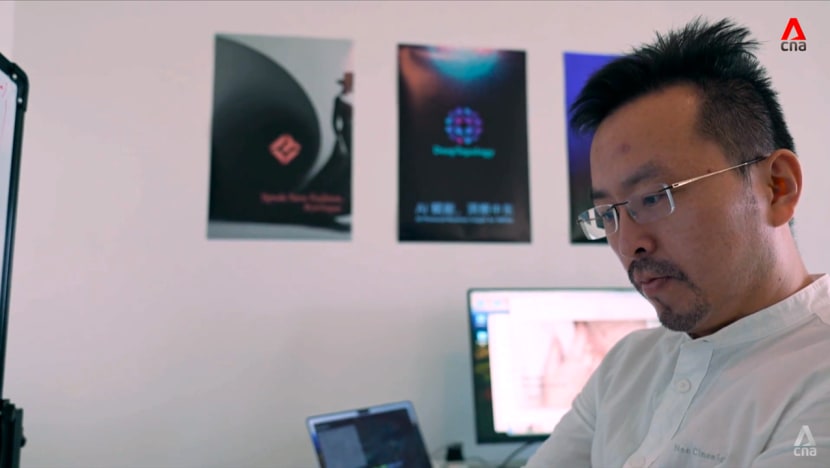
Notwithstanding the “vast” differences in culture and language between the UAE and China — which is the “biggest challenge” he faces living far from his loved ones — he has worked in Abu Dhabi for five years now.
And he gets to feel a sense of “freedom” thanks to a long-term residency permit known as the Golden Visa. Introduced in 2019, it is offered to individuals in professions that are in demand in the UAE.
They include athletes, computer scientists, data analysts, doctors, engineers and specialists in the arts and creative industry.
To attract these foreign professionals to grow their careers here, the Golden Visa accords its holders benefits such as residency for up to 10 years, inclusion of family members and the flexibility to move in and out of the UAE.
WATCH: How Asian foreign talent in Middle East is helping to build its post-oil economy (46:51)
It is also not tied to an employer, unlike a traditional visa.
“Traditional visas must be renewed every two years. This is a very cumbersome process. We need to undergo medical examinations and queue for a long time. With a Golden Visa, I needn’t go through these tedious procedures,” said Ren.
“I can now work for myself, start my own business, without being bound to a single employer. It offers me full autonomy.”
It has granted him the flexibility to work remotely, from his flat in the heart of the city and from overseas, even before the pandemic made hybrid work arrangements a norm.
He has run multiple tech start-ups out of the UAE, on top of his technical advisor role at a local university. These enterprises not only generate revenue for him, but also keep him plugged into the country’s AI sector.
The industry has grown especially since 2021, when the UAE launched its Operation 300 Billion strategy aimed at increasing the industrial sector’s GDP contribution to AED300 billion (S$111 billion) by 2031.
It includes the manufacturing of new technology, and both government and businesses have “increased their investments in digital transformation”, said Ren. Other nascent industries include digital health and aerospace engineering.
Today, the non-oil sectors can account for more than 70 per cent of the country’s GDP, making its economy one of the most diversified in the Gulf Cooperation Council, which also comprises Bahrain, Kuwait, Oman, Qatar and Saudi Arabia.
SAUDI ARABIA GOING FOR COFFEE GROWTH
While the UAE may be one of the front-runners in the race to seize opportunities in a post-oil future, its neighbours are catching up, each with its own diversification plans that have drawn expats, entrepreneurs and investors to the region.
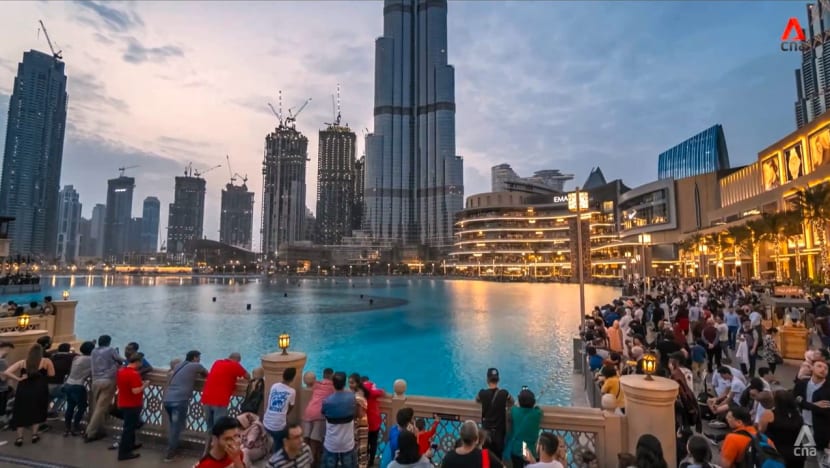
In Saudi Arabia, these plans include Khawlani coffee beans, a variety of arabica beans. They are known for their rich aroma — a result of being grown on volcanic soil in the south-west of the kingdom.
While neighbouring Yemen and Ethiopia have traditionally been more dominant players in the global arabica coffee market, Saudi Arabia is seeking to up its game.
Its sovereign fund, the Public Investment Fund (PIF), is investing nearly 1.2 billion riyals (S$436 million) to transform the national coffee industry over a 10-year period, boost annual production from 300 tonnes to 2,500 tonnes and export Saudi coffee globally.
To do this, the PIF is partnering the private sector to apply best practices in all aspects of coffee production, from harvesting to roasting. This is where Indonesian Amirrakhim Putrantyo comes in.
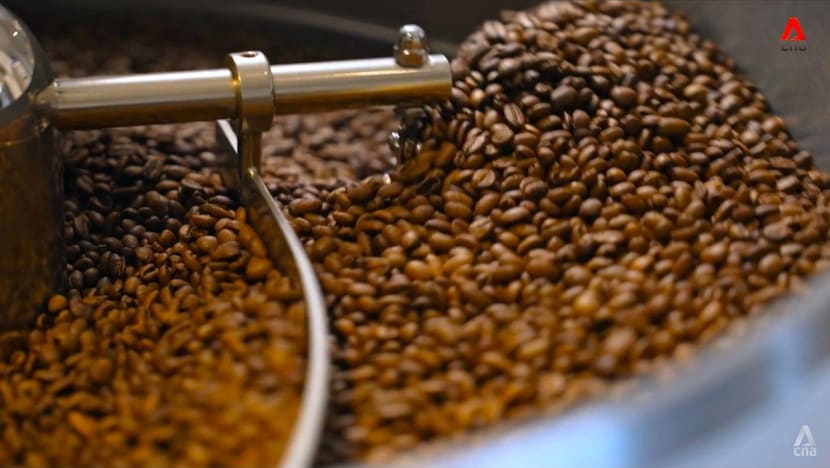
Having established himself as a specialist roaster back home and then in Kuwait, he was recruited by a Saudi roastery about two years ago. He had heard about the kingdom’s plans for its coffee industry and decided to move.
His job is to teach staff how to bring out the flavours in this beverage. Explaining how it can be done, he said changing the temperature of the coffee during roasting towards the end will determine its flavours.
For example, the coffee becomes sweeter if its temperature is raised slowly. If the temperature is raised faster, the coffee will taste more acidic.
What attracted Amirrakhim to Saudi Arabia was the relocation package. Firstly, the salary is “much higher” than what he earned in Indonesia as a coffee roaster.
Like most employers in the kingdom, his provides free health insurance — plus a free visa, free accommodation and free transport, he cited.
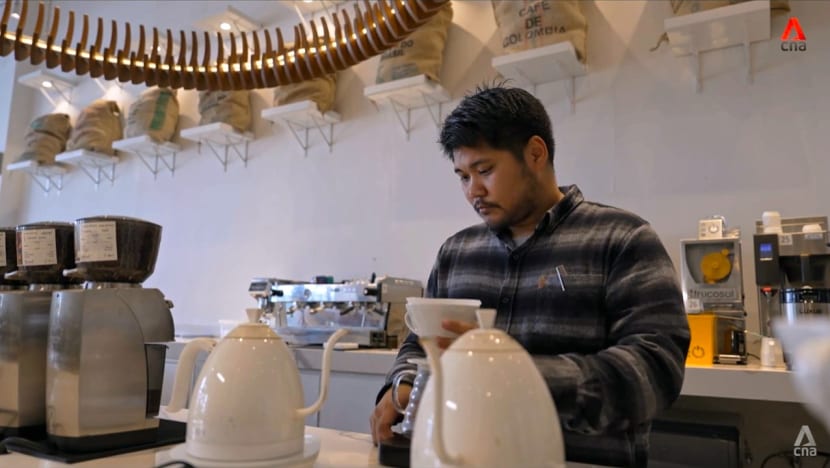
“It means (our) take-home pay (is) precisely (what) they put in the job offer,” he said, pointing out also that there is no personal income tax in Saudi Arabia.
INSPIRED BY JAPANESE ART FORMS
A growing coffee industry offers just a taste of the changes brewing across Saudi Arabia as part of its Vision 2030 diversification master plan. The kingdom also welcomes foreign collaboration to help shape nascent industries such as the creative sector.
Take, for example, Manga Productions, a creative studio based in Riyadh. It produces animated films, video games and comics for local and international audiences using styles inspired by Japanese art forms such as anime and manga.
With the mantra, “inspire the heroes of tomorrow”, the studio seeks to cater for a growing market in the Arab world, home to about 60 million anime viewers in 2022.
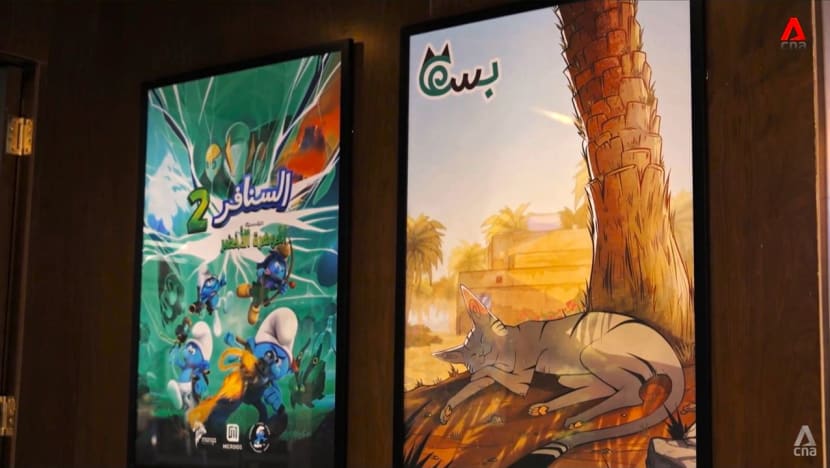
Shota Mizutani, who spent more than nine years as a Japanese teacher at a local university in Riyadh before joining the studio, was “surprised that so many Saudi people were interested in Japan” when he first came to Saudi Arabia.
“Japanese people don’t know so much about Saudi Arabia,” he said. “A lot of media talked about Arabs or Islamic countries kind of negatively.”
He has since learnt that family ties and hospitality, for example, are “highly valued” in the kingdom, like in Japan and “maybe more than in Japan”. “We have a lot of similarities, a lot of things in common,” he said.
Today, he teaches Japanese to Manga Productions’ staff, on top of his roles as a researcher and a liaison between Saudi animators and their counterparts in Japan.
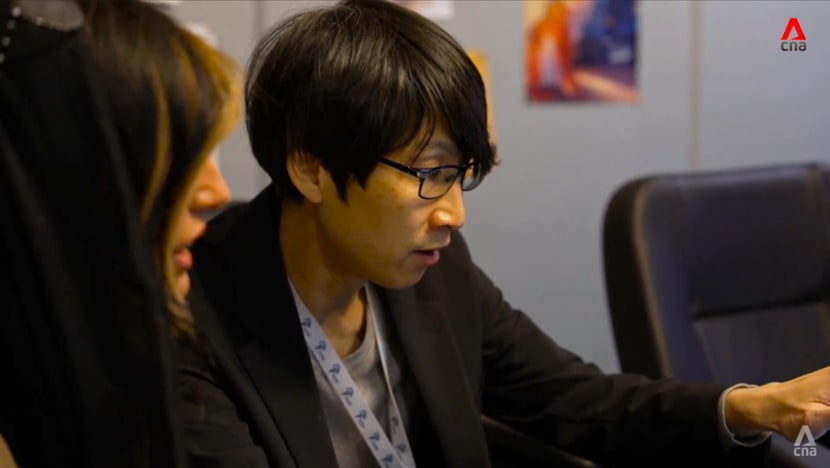
To replicate the quality and standards Japanese productions are known for, the company regularly partners studios in Japan. In facilitating these collaborations, Mizutani translates scripts, storyboards and correspondence between the two sides.
“I’d like to be a bridge (between) Saudi Arabia and Japan, and … would like to introduce the beauty of Saudi Arabia to Japanese people as (much) as I’d like Saudi people to know about Japan and its culture,” he said.
It’s the perfect place to make my dreams come true.”
REFORMS TO EMPOWER WOMEN
Through its Vision 2030 master plan, Saudi Arabia also aims to enhance the quality of life for its residents, both local and foreign. To this end it has taken steps to create a more welcoming environment for expats and investors.
One of its civil reforms has been to give women new rights by, for example, lifting restrictions that prevented women from driving.
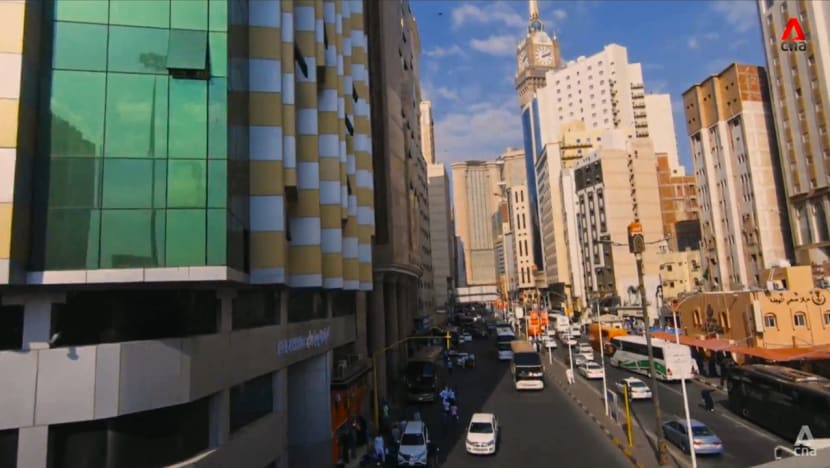
Women have been allowed to go out in public without wearing a headscarf or the abaya, the black robes that have long symbolised Islamic piety. These changes represent a broader trend towards modernisation in the conservative kingdom.
With women also no longer needing permission from a male guardian to travel, that mobility translates into the ability to enter the workforce, cited research fellow Clemens Chay at the National University of Singapore’s Middle East Institute.
“But one should understand that because of the long-standing high level of conservatism in the kingdom, these changes can be rolled out in policy but not be accepted socially,” he said.
“Society needs time to … digest the kind of policies that are, to (the people), considered revolutionary.”
Still, the government has sought to empower women through training. This has helped lead to a rise in the labour force participation rate of Saudi women, from 20 per cent in 2018 to 36 per cent in 2022.
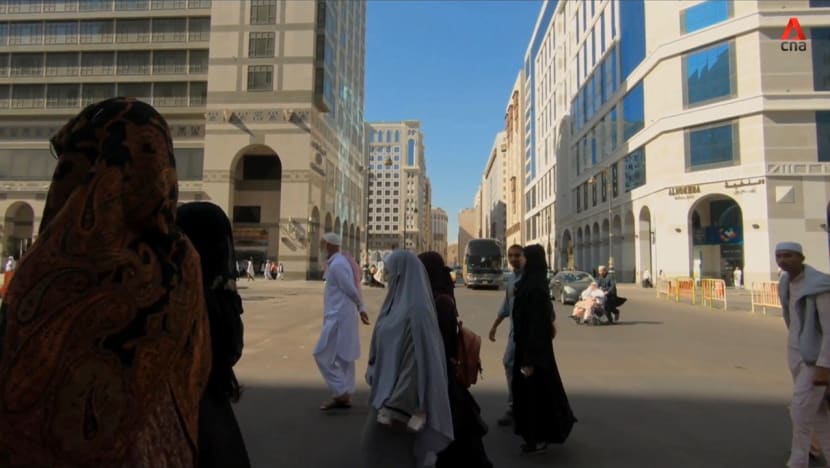
The sports sector in particular saw a 150 per cent increase in women’s participation between 2015 and 2019 as restrictions on women taking part in competitive sport were progressively lifted.
Today, the country has more than 6,000 registered female athletes, a number expected to grow as professional clubs and Saudi national teams ramp up training for women. This is what attracted Fani Supriyanto to Saudi Arabia last year.
The Indonesian national team goalkeeper plays for Al Hmmah in the kingdom’s first women’s football league, working alongside locals and other international players to realise shared goals.
“It’s exciting to see the government open up society and allow women to participate in sports. This provides opportunities for women to unlock their potential and work towards competing internationally,” she said.
“Although we come from different countries, we’re united by the same objective. We all want to achieve results for our team. When we win, we celebrate together. When we lose, we share the disappointment. We support each other.”
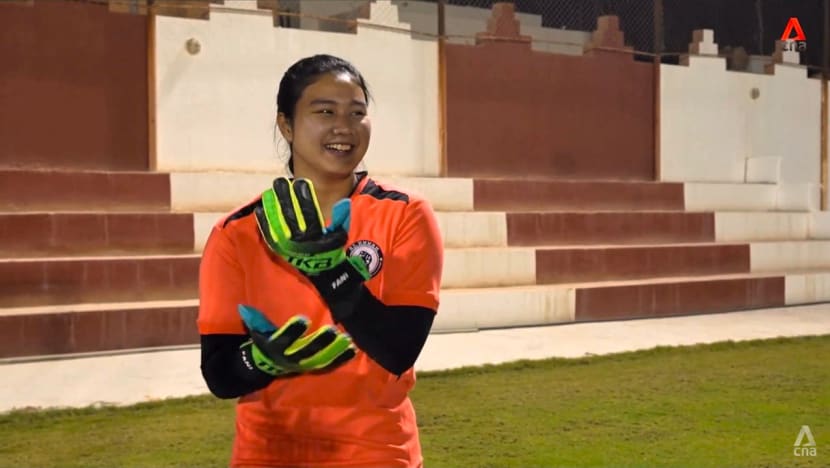
Saudi Arabia’s efforts to project inclusivity come ahead of the 2034 Fifa World Cup, the multi-billion-dollar project that it is set to land and that is emblematic of the Gulf Falcons’ ambitions to become, in football terms, global playmakers.
UAE SET UP FOR WORK, PLAY, FAMILY
The UAE, too, is starting to play a more prominent role on the world stage. Over the next decade, it seeks to establish itself as a global hub for plastic recycling.
This fills a void left by China in 2018, when it stopped buying the world’s discarded plastics.
The UAE intends to turn used polyethylene terephthalate, the plastic widely found in food wrappers and beverage bottles, into products that could be exported to the rest of the world.
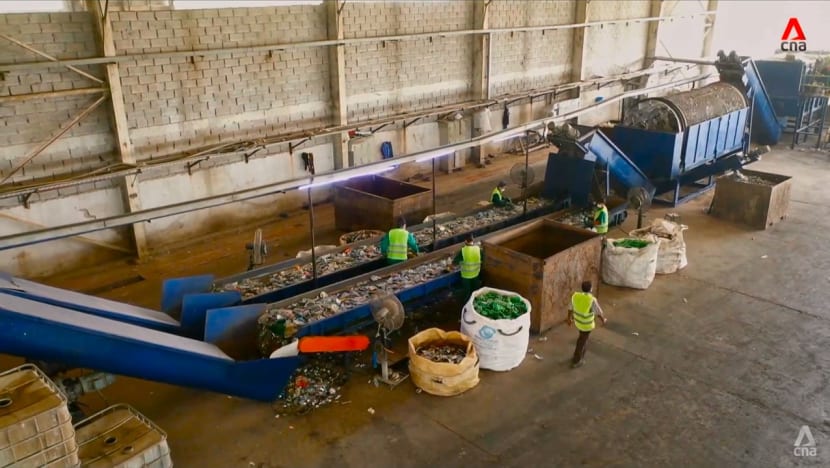
Chu Weijun, who runs a factory that recycles the country’s plastic waste, welcomes the challenge. “We have the experience; we can get the work done. If we’re expected to increase our output, we’ll reap increased economic benefits together,” he said.
“It also provides social benefits for the UAE. Recently, more people have been coming to the UAE. This has led to more household refuse. … If we could help the government shoulder this burden, it’d also make the country’s environment cleaner.”
Chu is part of a “close-knit” Chinese expat community in the UAE. They make up an estimated 4 per cent of the population and make him “feel at home”, he said. “You don’t feel lonely.”
Following the pandemic, after months of a self-imposed lockdown, he joined a running club formed by the Chinese community in Dubai. More than an exercise routine, it has since become a celebration of camaraderie and common identity.
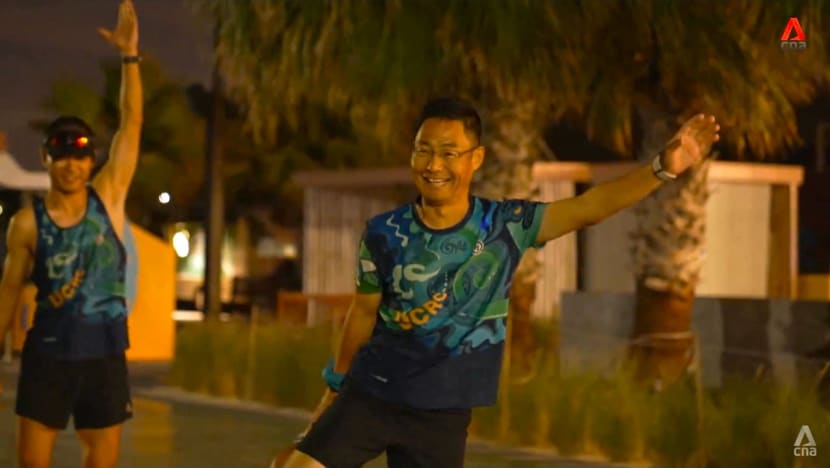
“One benefit of being part of a running team is that it’s community-led. There are no fees; we’re all volunteers. At the resting point, we’ll share food and other supplies. We help each other and share our experiences,” he said.
“We share tips on preventing injuries. We recommend good shoes and where to buy them at a cheaper price. We train for races together. We encourage carpooling if there’s space in someone’s car. … It’s really enjoyable.”
As for Ang, the UAE’s cosmopolitan hive of activity has made him comfortable enough to express his Peranakan identity, which also serves as a networking tool.
In 2021, he and his wife established Rumah Peranakan, a private dining experience. In opening up their dining room to guests from all walks of life and nationalities, the couple can bond with fellow expats.
“Being Singaporean, especially Peranakan, we’re very into food. … You tell the stories about Peranakans through food,” he said. “I get to meet new people, learn new cultures from them.
“Importantly, I make new friends. And some of the new friends that I make evolve into business.”
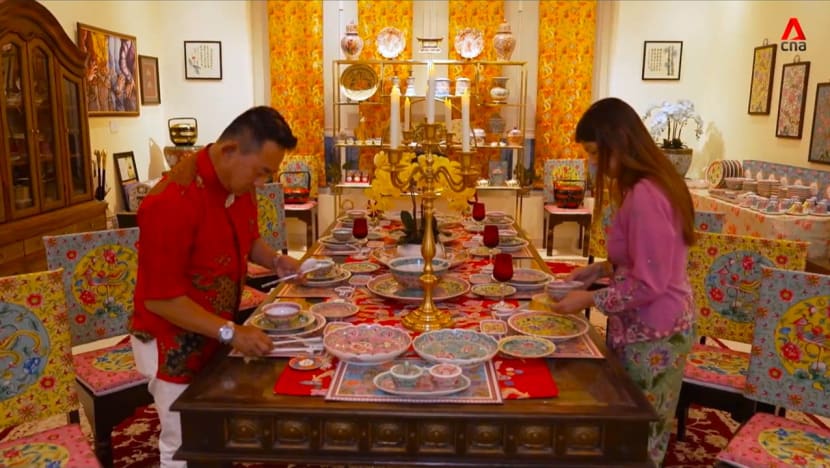
The country has also become an attractive place for expats seeking to bring their loved ones along for the ride, he feels.
“The way Abu Dhabi is designed is very similar to Singapore. It’s very safe. You have a lot of activities for the family. School is good here. (There’s) easy access, driving from one place to another,” he said.
“(There’s) a great community — lots of Singaporeans, Malaysians (and) Indonesians who we’ve made friends (with) along the way. (Over the past) 15 years, I’ve had my own group (from the) Asian community. And we always do get together.
“Never once (did) I feel homesick.”
Watch the documentary Gulf Falcons here.








